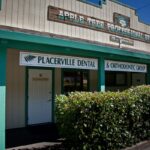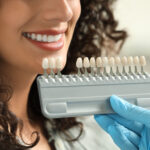Fears of pain during a dental procedure is all it takes to keep many Americans from visiting the dentist. This issue is so common that the Placerville Dental Group takes great care to determine your level of comfort before, during and after your procedure. During your procedure we can use sleep dentistry to make sure you experience no pain, anxiety, or discomfort whatsoever. After oral surgery, however, some pain may linger due to the procedure. This means we may prescribe pain medication for use when you get home.
Types of Dental Pain Suppressants
Several medications are available to help with such discomfort. Let’s discuss three options that are commonly used in the dental field.
Analgesics – these medications are often applied topically to relieve pain or irritation with dental procedures like tooth cleanings or conditions like toothaches. They also keep irritation under control when getting used to appliances like orthodontics. Oral products include Chloraseptic. Most analgesics come in pill form, like ibuprofen, acetaminophen and aspirin. These can be purchased over the counter. Stronger analgesics are intended only for short-term use, may be habit forming, and therefore require a prescription.
Anesthetics – these medications can be applied topically, numbing the affected area temporarily. Typical over the counter anesthetics include Orajel, stronger formulations of Chloraseptic (containing benzocaine), Anbesol and others. Again, longer-lasting formulations require a prescription, which will be provided if needed.
Post-Procedural Antibiotics
Antibiotics are not needed for most dental procedures. In cases of tooth extractions or oral surgery, however, antibiotics may be prescribed. In cases of severe periodontitis (gum disease), oral rinses that include antibiotic agents may be prescribed. These are significantly stronger than the anti-bacterial agents found in over the counter mouthwashes.
Naturally, the Placerville Dental Group maintains a detailed, up-to-date knowledge of what medications are the best options for any procedure. Please ask if you have questions about what medications might assist you after a procedure. Give us a call or schedule an appointment online to discuss the best way to cope with dental discomfort or disease.



0 Comments